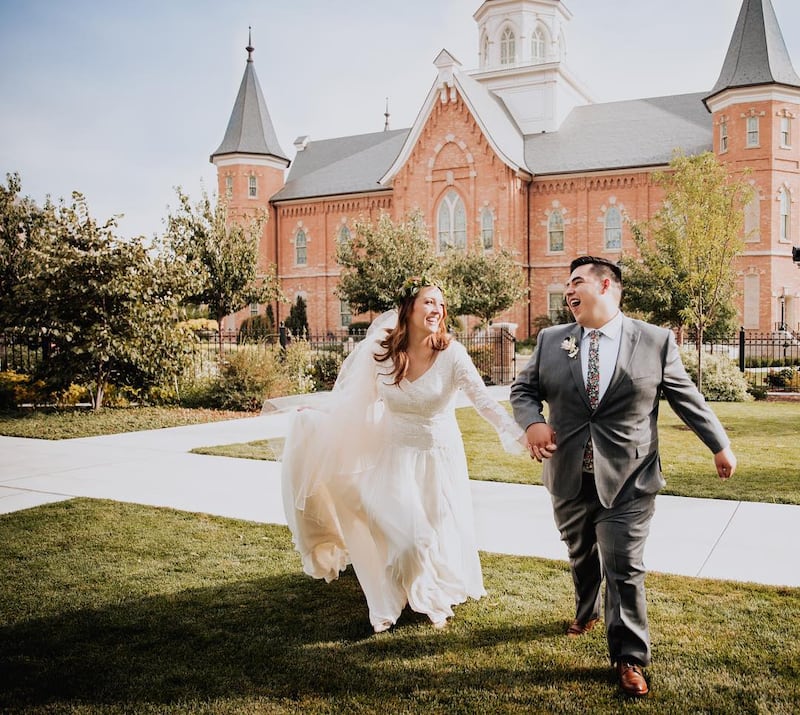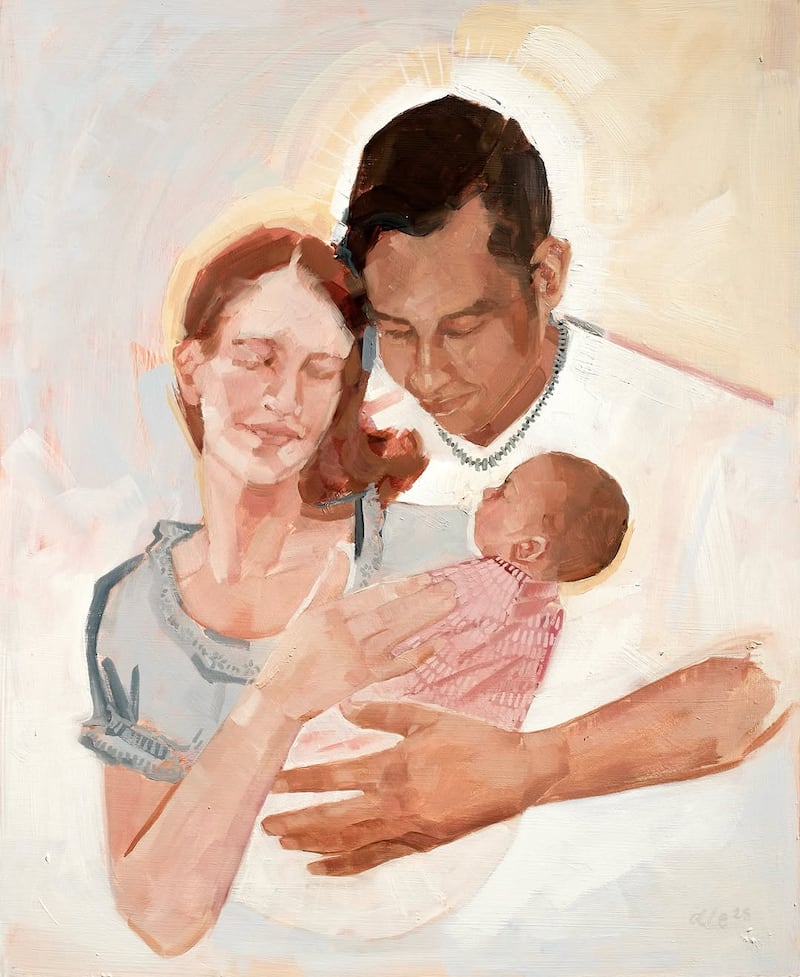Two years ago, a father posted a call for help on LinkedIn.
Steve Wright’s son-in-law, Tanner Martin, was dying of cancer. Despite the tragedy, he still wanted to have a child, but years of chemotherapy meant Tanner was likely infertile. So, Tanner and his wife, Shay — both college students at the time — resolved to somehow pay for a $20,000 IVF procedure.
Wright’s LinkedIn post went viral. The response from the Utah community was overwhelming.
Meet Shay and Tanner Martin
Tanner first met Shay while serving a mission for The Church of Jesus Christ of Latter-day Saints. Their friendship evolved over shared interests, deep talks and inside jokes. Five years after their first meeting, they went on their first date. Shay emphasizes, “Let the record show he kissed me first. And the rest was history.”
They married in October 2018. Just two years later, Tanner was diagnosed with Stage 4 colon cancer.
It was a long shot, but when Shay and Tanner decided to try IVF, they hoped an Instagram auction could help fund the procedure. Shay offered her services as a wedding and family photographer, while Wright solicited auctionable donations from his professional network. He was relatively new to the Silicon Slopes business community, having moved during the COVID-19 years, but the local community stepped up nonetheless.
“I posted on LinkedIn about Shay’s Instagram auction, and the floodgates opened up,” he shares. “Well wishes. Donations. Reposts. Tags. It went on and on. People from Silicon Slopes even reached out and asked to add a GoFundMe so they could make direct donations instead.”
In the span of a month, 100+ items were poured into the auction, 200+ people made bids, and 92 individuals contributed to the GoFundMe. Crumbl CEO Jason McGowan led the charge, gifting a year of cookies for the auction, $10,000 of personal funds, and an all-expenses-paid vacation to anywhere in the world for Shay and Tanner.
Donations more than covered the cost of IVF, and shortly after, Shay announced her pregnancy.

Generosity or “generosity”?
You might see this sort of story all the time. A company contributes to a cause, publishes a press release, and proclaims its dedication to the mission loudly and often. Cynics may ask, was it all just a PR play?
Within the Utah business community — or at least in this case — good PR wasn’t the motive. When asked why they contributed, former Gabb CEO Nate Randle referenced his relationship with Wright, saying, “I have a lot of respect for Shay’s father, so we [at Gabb] jumped in. It was the least we could do.” Pillow Cube CEO Jay Davis echoed a similar notion: “I think it’s good business to do good and not expect people to know about it. You should participate just to be a good neighbor.”
Even without overt advertising, corporate philanthropy can benefit a company’s bottom line. The top comment on a viral post can be seen by hundreds of thousands of people. But in interview after interview for this story, a throughline appeared: community matters to Utahns.
“There’s this acknowledgement that we care about this place, and we’re going to prop these people up,” says Sorenson Impact Institute’s Venture Capital Director Smit Naik. Mo’Bettahs representative Kylee Arreaga encapsulates Naik’s sentiment as well: “Family is one of our core values. Our founders are brothers. People bring their kids to the office here, and since Shay and Tanner are in our backyard, it was a no-brainer to help out.”
And more importantly, for Shay and Tanner, motivations didn’t matter. Their baby girl was born in May of this year. Her name is Amylou.
Filling in the gaps of a flawed system
Everyone who contributed to the fundraiser was happy to help, but there was an underlying acknowledgment that it shouldn’t have been necessary in the first place.
“Our insurance didn’t cover IVF,” Shay explains. “And for some reason, they even got to be the one to decide which pain meds are going to be helpful, not Tanner’s doctor.”
Arreaga says contributing to the Martins’ cause was an “easy yes,” though it’s unfortunate people have to go to their communities and business networks to find support.
“I don’t think I’ve met a single person in my life who hasn’t been affected in some way by healthcare struggles or the extra hoops and hurdles you have to go through,” she continues.

Life after Tanner
Tanner passed away in June. He was 30 years old.
“If you’re watching this, I’m dead,” Tanner laughs in a posthumous Instagram video. “Life was awesome. Thank you for helping my last few years on Earth be fun and comfortable. We should have most stuff covered financially, but Shay can let you know if we need anything. Be kind to each other. Assume good intent in other people, and you’ll have a happy life.”
Tanner’s family expressed more relief and joy than grief. As Wright explains, there can be an upside to a loved one knowing their time is almost up if you’re smart about using that time.
“Our beautiful granddaughter is a miracle,” he continues. “My dad passed away in his sleep. He didn’t suffer, but I didn’t have a chance to say goodbye. With Tanner, he was in so much pain, and we had time to prepare emotionally for when he passed.”
Shay’s GoFundMe surpassed $720,000 following Tanner’s death. She’s now following in the footsteps of the philanthropy she received, announcing on September 12th that she’ll match $5,000 in donations to Operation Literacy.
Wright, who expresses his gratitude to Utah’s business community, emphasizes the quiet philanthropy that defines the state’s business culture.
“We talk about the technology and unicorns coming out of Silicon Slopes, but there’s this soul side that isn’t mentioned enough,” he says. “There are people out there, like Nate Randle, helping single parents. The owner of Minky Blankets donates to every cause you can think of. The donations, the well wishes, the GoFundMe, it went on and on. I don’t know if the businesses in Utah get enough credit for the good they do.”


